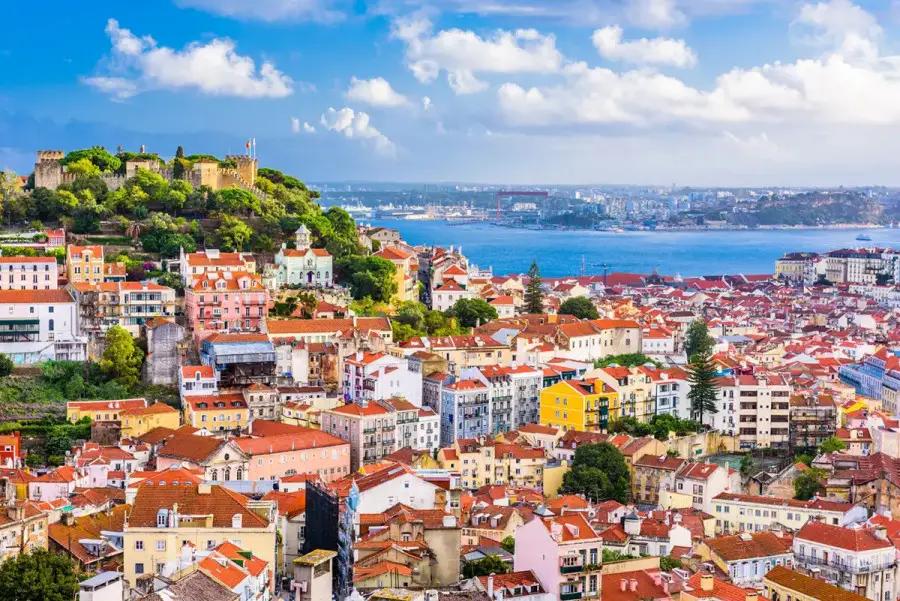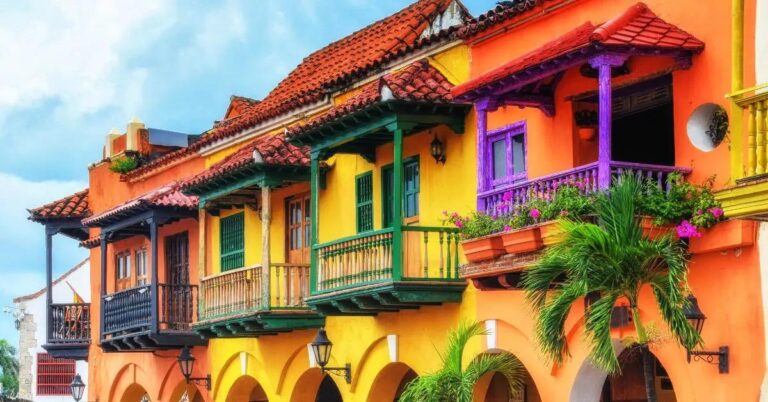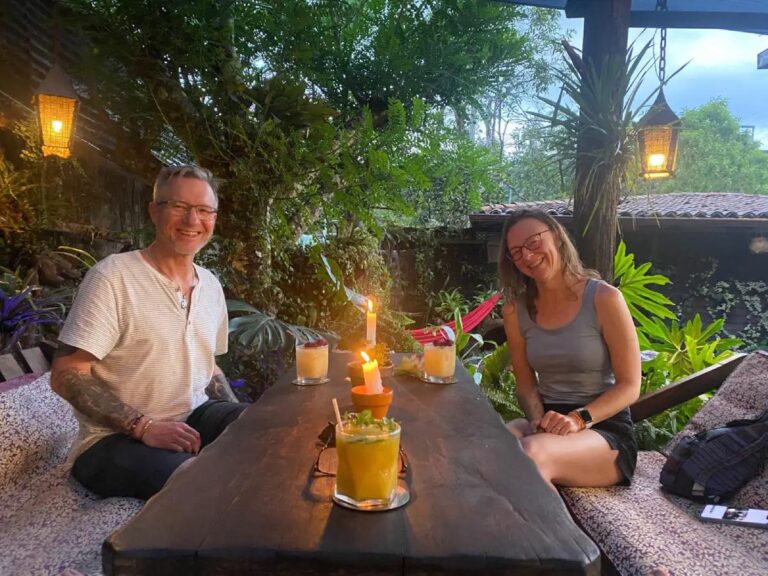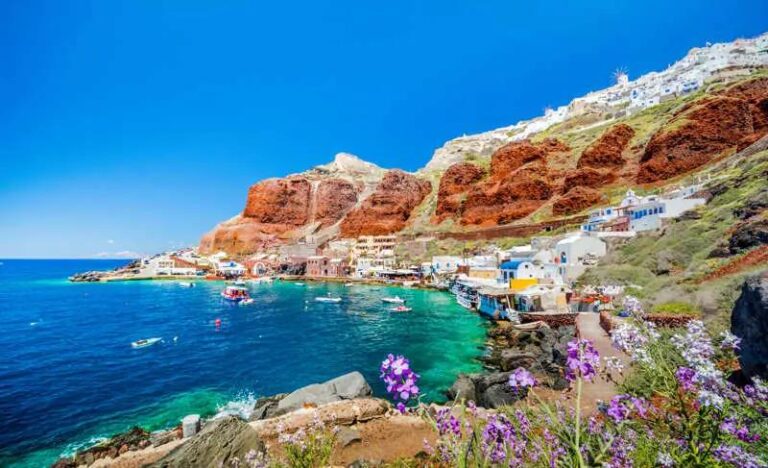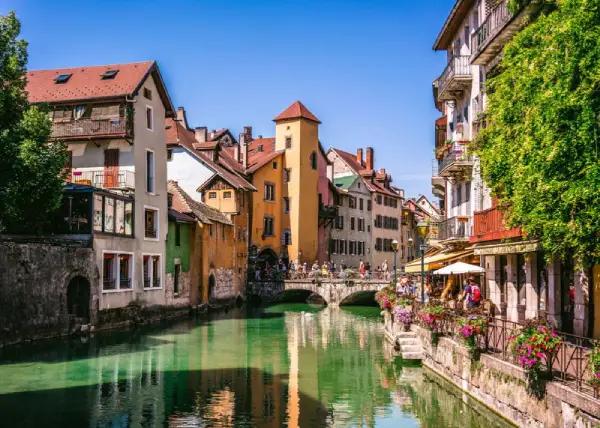TL;DR:
- Cost of Living: Retired couple needs €1,500 to €2,000/month.
- Housing: City center apartments €700-€1,000/month; rural €400.
- Healthcare: Public affordable; private insurance €50-€100/month.
- Transportation: Public transport €20-€40/month. Car costs higher.
- Groceries: €150-€300/month. Local markets cheaper.
- Dining Out: Cafes €8-€12, mid-range €25-€30/person, fine dining €60+.
- Utilities: €50-€100/month for electricity; water €20-€30, gas €15-€30.
- Household Help: Cleaning €7-€10/hr, gardening €9-€15/hr, caregiving €12-€20/hr.
- Taxes: NHR regime offers tax benefits. US retirees pay taxes as per agreement.
- Visa: D7 Visa requires €7,200/year income proof; other options include Golden Visa.
- Popular Regions: Lisbon, Porto, Algarve. Costs vary; rural areas cheaper.
- Pros: Affordable living, excellent climate, relaxed lifestyle.
- Cons: Bureaucracy, language barrier.
Is retiring in Portugal a dream or a financial nightmare? Let’s break it down. From rent to utilities, I’ll guide you through every penny. You’ll see how Portugal stacks up against the rest of Europe and discover if its sunny charm matches your retirement budget. Ready to find out if you can live comfortably without breaking the bank? Dive in and let’s explore the cost of living in Portugal for retirees!
What is the Overall Cost of Living in Portugal for Retirees?
The cost of living in Portugal for retirees can be very attractive. Many retirees from the US and UK find it to be more affordable than their home countries. But, do not move to Portugal thinking it’s cheap: r/expats have noted that costs can differ greatly based on lifestyle and location.
General Cost of Living Overview
On average, a retired couple can live comfortably on a budget of about €1,500 to €2,000 per month. This includes housing, food, transportation, utilities, and health care. Some may even manage on less, particularly outside of Lisbon or Porto.
Comparison with Other European Countries
Compared to other European nations, Portugal ranks as one of the more affordable countries for retirees. In major cities like Lisbon and Porto, expenses can be higher, but still often lower than in cities like Paris or London. Retirees often find the quality of life in Portugal to be comparable or even better when weighing in the cost.
Average Monthly Expenses for Retirees
A closer look at monthly expenses reveals a manageable budget. Here’s a breakdown:
- Housing: Renting a one-bedroom apartment in the city center can cost around €700 to €1,000 per month. In smaller towns, prices can dip as low as €400.
- Food: Monthly grocery bills typically range from €200 to €300. Dining out is also affordable, with a meal at a mid-range restaurant costing around €10 to €20.
- Utilities: Expect to spend about €100 to €150 each month on electricity, heating, cooling, water, and garbage. Mobile phone plans can go for around €20 per month.
- Healthcare: Public healthcare is largely free or very affordable with insurance. Private health insurance ranges from €50 to €100 monthly, providing more comprehensive coverage.
Closing Thoughts
The cost of living in Portugal offers retirees a chance for a pleasant and affordable retirement. By keeping a close eye on their monthly budget, many can enjoy a comfortable, fulfilling lifestyle in this beautiful European country. For more details on living expenses and real-life experiences from other retirees, click here.
How Much Does Housing Cost in Portugal for Retirees?
Is it cheaper to retire in Spain or Portugal? In my expertise, Portugal often has lower costs than Spain. Retirees typically find housing expenses in Portugal more affordable. The average rent in various regions varies slightly. In Lisbon, a one-bedroom apartment might cost around €950 monthly. Porto prices are lower, averaging €700 a month for a similar setup.
The property rental market in Portugal is diverse. Many retirees prefer to rent, avoiding the complexities of buying property. Renting offers flexibility and fewer financial commitments. Yet, buying can be a good investment. The cost of buying depends on location. In the Algarve, known for its expatriate community, prices can be higher than in inland areas.
Should you buy, consider property taxes and maintenance costs. Property taxes are generally low in Portugal. Annual property tax (IMI) ranges from 0.3% to 0.8% of the property’s value. Maintenance can include fees for shared spaces in apartments, often affordable and predictable.
Though renting and buying both have their merits, renting is often simpler. It avoids the upfront commitment of buying property. This makes it easy for retirees to explore and enjoy different regions. For more detailed info, you can explore the property rental market in Portugal. This link offers current listings and regional price adjustments.
Analyzing all aspects, Portugal presents itself as a retiree-friendly destination. Make informed choices based on your budget and lifestyle.
What are Healthcare Costs for Retirees in Portugal?
Yes, a retired US citizen can move to Portugal. Retiring in Portugal offers high-quality healthcare options. Let’s dive deeper into both public and private healthcare costs.
Public vs. Private Healthcare Costs
In Portugal, retirees have access to both public and private healthcare. The public healthcare system, known as the Serviço Nacional de Saúde (SNS), offers affordable care. For small fees, you get consultations, surgeries, and lab tests. But, waiting times can be long. Many retirees choose private insurance to get faster access to doctors and specialists. Private healthcare can be more costly but offers shorter wait times and more personalized care.
Insurance Premiums and Copayments
Health insurance in Portugal is much cheaper than in the US. For example, a basic insurance plan can cost around €50 to €150 per month, depending on your age and health conditions. Copayments, or the amount you pay out of pocket for services, vary. Visiting a specialist might cost around €30 to €50 per visit. Always check what each insurance plan covers.
Prescription Medications and Routine Care
Prescription medications in Portugal are generally cheaper. A trip to the pharmacy won’t usually break the bank. Common prescriptions like blood pressure medicine or antibiotics cost between €5 and €20. Routine care, like annual check-ups and dental visits, is also affordable. For instance, a dental cleaning might cost around €40 to €60.
Healthcare costs in Portugal are reasonable, making it a great choice for retirees. The combination of public and private options ensures you have the best care, tailored to your needs.
What are Transportation Costs for Retirees in Portugal?
Public transportation in Portugal is efficient and cheap. Buses, trains, and trams are common in cities. A monthly pass for public transport costs around €20 to €40.
If you want to own a car, you should consider several costs. Buying a new car will set you back around €20,000 for a basic model. You will also have to pay for insurance, parking, and fuel. Fuel prices are higher compared to the United States. Expect to pay around €1.50 per liter for petrol.
Maintaining a car in Portugal can be pricey. You have to pay road tax, which varies between €50 to €200 yearly. Services and repairs can add another €300 to €600 annually. Car inspections are required every two years, costing around €25 each time.
Taxis and ride-sharing services like Uber are handy for occasional trips. Taxis have a starting fare of €3.25 and then €0.47 per kilometer. Uber is slightly cheaper, depending on the time and location.
To sum up, public transport is your best bet if you are looking to save money. Driving a car comes with a broader set of costs, but it offers flexibility. Taxis and ride-sharing services offer convenience for short trips, and the costs are manageable.
Living expenses in Portugal, in general, are much lower than in other parts of Europe. So whether you are hopping on a tram or driving to the next city, you will find affordable options to suit your needs.
How Much Do Utilities Cost for Retirees?
Utilities in Portugal are quite affordable, especially for retirees. You can expect to pay approximately €50-€100 monthly for electricity, depending on the size of your home and usage. Water usually costs between €20-€30 monthly, while gas can be around €15-€30 a month. Living in an energy-efficient home or using utilities wisely can keep these costs lower.
Internet and mobile phone packages come with various options. The average cost for a combined package of high-speed internet, cable TV, and a landline is about €30-€50 per month. If you add on a mobile phone plan, which typically costs an extra €10-€20 monthly, it’s very manageable. Look for deals from major providers like MEO, NOS, and Vodafone to find the best package for your needs.
When planning your monthly budget, note that utility costs can vary with the seasons. For instance, electricity use may rise in the winter due to heating needs, especially in the north. Conversely, summer in Portugal might require increased use of fans or air conditioning in the hotter southern regions. Monitoring your usage during these times can help you avoid surprise expenses.
Opting for energy-efficient appliances and making small lifestyle changes, like turning off lights when not needed, can lead to savings. Many locals also use gas canisters for hot water and cooking, which can be a cheaper alternative to mains gas.
Make sure to factor in the occasional maintenance costs, such as periodic servicing of your heating system or quick repairs. These small steps can keep your utility bills predictable and reasonable.
For those applying for the D7 Visa, understanding utility costs helps in planning your budget. The D7 Visa process requires proof of stable income, and knowing your monthly expenses, including utilities, will help you meet the requirements.
In summary, the cost of utilities in Portugal is affordable and manageable for retirees. With careful planning and a few smart choices, you can keep your living expenses under control.
What Can Retirees Expect to Spend on Groceries in Portugal?
Let’s start with the basics. The average monthly grocery bill for a retiree in Portugal ranges from 150 to 300 euros. This can change depending on your lifestyle and where you shop.
Now, local markets vs. supermarkets: Local markets offer fresh, local produce at lower prices. Supermarkets have convenience but may cost a little more. In local markets, you get fresher fruits, vegetables, and fish.
How about specialty and imported food items? These can spike your bills if you crave foods from home. Imported cheeses, meats, and snacks are pricier than local goods. Stick to local brands, and you can save a lot.
In Portugal, meal staples like bread, milk, and eggs are very affordable. A loaf of bread costs about 1 euro. Milk goes for around 0.60 euros per liter. Eggs cost about 1.50 euros for a dozen.
At the local markets, fruits and veggies can be a bargain. For instance, a kilogram of tomatoes costs around 1.20 euros. Potatoes are about 0.70 euros per kilogram.
When shopping in supermarkets, prices vary by chain. Pingo Doce and Continente are popular choices with fair pricing. Some expats prefer Aldi or Lidl for better deals.
Specialty items can get costly. A bottle of imported wine might cost 8 euros, while a local bottle is only 3 euros. Gourmet cheeses and meats follow this pattern too.
Finally, keep in mind that prices can vary with the season. During the summer, some items like fruits may cost more. But overall, Portugal offers affordable grocery prices for retirees.
By knowing where and how to shop, you can keep your daily costs in line. Portugal’s grocery costs can definitely fit a retiree’s budget.
For more details on living expenses in Portugal, check out this guide.
How Much Does Dining Out Cost in Portugal for Retirees?
Dining out in Portugal is both affordable and delightful. You can find a cozy cafe where a meal costs around €8-€12. Cafes are great for quick, inexpensive meals. For instance, a coffee might be €1, and a pastry can be less than €2.
Mid-range restaurants offer a more varied menu. Here, you can expect to pay about €25-€30 per person. This cost often includes a main course, a drink, and sometimes dessert. These restaurants provide a chance to savor traditional Portuguese dishes like bacalhau (salted codfish) or caldo verde (green soup).
Fine dining is a different game. High-end restaurants in Portugal can cost €60 or more per person. The price might include multiple courses and fine wines. While pricier, these places offer an exquisite dining experience that should not be missed.
Is dining out cheaper in other regions of Portugal? Yes, the cost of dining out can vary by region. In the Algarve, known for its beaches, prices might be higher, especially in tourist areas. In contrast, cities like Porto and Lisbon have a wide range of dining options. You might find both costlier and budget-friendly restaurants.
Small towns and rural areas tend to offer more affordable dining choices. Local eateries in these places often serve fresh and tasty meals at lower prices. Eating in these spots can also give you a taste of authentic regional food.
How can retirees save money while dining out? Here are some tips:
- Lunch Specials: Many restaurants offer lunch menus at a discount. The quality is the same, but you pay less.
- Local Taverns (Tascas): Eating at local tascas offers delicious, home-cooked meals at low prices. These are the best-kept secrets.
- Market Meals: Grab a meal at local markets. They provide fresh, inexpensive foods.
In summary, dining out in Portugal is flexible and affordable. Whether you choose a casual cafe, a mid-range restaurant, or fine dining, you’ll find a range of options that suit your budget. Enjoy the flavors without breaking the bank!
What are the Entertainment and Recreation Costs for Retirees in Portugal?
Retirement in Portugal offers many fun activities without breaking the bank. Curious about cultural activities? You’ll find museums in Portugal charge between €5 and €10, perfect for a taste of culture. Theaters and concert tickets typically range from €10 to €25, letting you enjoy vibrant arts scenes.
For those who love staying active, gym memberships are reasonably priced. A monthly membership at a mid-range gym will cost about €30 to €40. Sports clubs might be a bit more but still affordable. This will help you maintain a healthy lifestyle.
Portugal’s green spaces are a treasure for retirees. Public parks and outdoor areas are free and abundant. Relax or exercise in lush, scenic spots without spending a dime. These spaces encourage a peaceful and active lifestyle.
Wondering about free outdoor activities? Portugal’s mild climate allows for year-round enjoyment. Retirees often engage in walking, jogging, or biking. Many coastal towns offer free beach access, ideal for swimming or sunbathing.
Overall, the cost of entertainment and recreation in Portugal is very manageable. Indulging in cultural and outdoor activities is easy and affordable here. The country’s offerings cater to various interests and budgets, making your retirement enjoyable and enriching.
What are the Key Considerations for Financial Planning for Retirement in Portugal?
Do US retirees pay taxes in Portugal?
Yes, US retirees do pay taxes in Portugal. Taxes depend on your status and income. Portugal offers a Non-Habitual Resident (NHR) tax regime, which can reduce tax rates for up to 10 years. The NHR allows for lower taxes on foreign income, including pensions. You must apply and qualify for this status before arriving.
Tax implications for retirees
Taxes vary by type of income, such as pensions, dividends, or property. If you have the NHR status, foreign pension income may be taxed at a flat rate of 10%. This is often lower compared to the taxes in the US. Portugal also has a double taxation agreement with the US. This means you can avoid being taxed twice on the same income.
Budgeting for recurring and unexpected costs
Budgeting in Portugal requires planning for both regular and surprise expenses. Regular costs include rent or mortgage, utilities, groceries, and healthcare. Unexpected costs could be emergency medical bills or home repairs. Saving a portion of your budget for these unforeseen expenses is wise. The cost of living is generally lower than in the US, but it can still surprise you if you are not careful.
Portugal pension vs. international pensions
Portugal offers a public pension system, but it might not be enough for a comfortable retirement. Most retirees rely on a mix of international pensions and savings. If you have a US-based pension, it is best to consult with a financial expert. They can help you understand the implications of drawing your pension while living in Portugal. Also, check if your pension is taxed both in the US and Portugal to plan accordingly.
Savings needed to retire in Portugal
The amount you need depends on your desired lifestyle. A modest lifestyle generally requires less. If you plan to live comfortably, a budget of around $2,500 to $3,000 per month is typical. This covers housing, food, healthcare, and leisure activities. Adjusting your expectations can help you manage your savings better. Always review your financial plan regularly to ensure you stay on track.
What are the Best Places to Retire in Portugal?
Overview of Popular Retirement Destinations: When considering a new home in Portugal, popular regions like Lisbon, Porto, and the Algarve often come to mind. Lisbon, the capital, offers rich culture and modern amenities. Porto boasts historic charm and vibrant wine culture. The Algarve attracts many retirees for its sunny beaches and relaxed vibe.
Lisbon: Lisbon is fantastic if you want a lively city life. You’ll find many activities and excellent healthcare. However, living here can be pricier compared to other regions.
Porto: Porto is known for its beautiful architecture and less hectic life. Living costs are generally lower than in Lisbon, offering a great mix of city benefits and affordability.
Algarve: Many choose the Algarve for its great weather and outdoor lifestyle. It’s a bit more touristy, but quieter towns can offer a serene retirement.
Cost Differences Between Rural and Urban Areas: Urban areas like Lisbon and Porto are more expensive than rural regions. In cities, expect higher rent and dining expenses. Smaller towns and villages, on the other hand, can be quite affordable. For instance, a rural village can cost 20-40% less in living expenses.
Living in a smaller town also brings a closer sense of community. You’ll spend less on daily essentials, and life can be more relaxing. However, access to top-notch healthcare and services might not match urban standards.
Factors to Consider When Choosing a Location: Consider your lifestyle preferences. Do you want busy city life or quiet coastal living? Think about healthcare access, local amenities, and transportation options. Climate can vary; the north is cooler and wetter, while the south is warmer, especially the Algarve.
Safety and community are also crucial. Make sure to visit potential locations before deciding. Talk to locals and other retirees. Research about safety, cost of living, and convenience in daily life. Finally, consider language. While English is widely spoken in tourist zones and cities, knowing some Portuguese will help immensely in rural areas.
What Visa Options are Available for Retirees Moving to Portugal?
Retiring in Portugal is a dream for many. The first step is securing a visa. The most popular choice for retirees is the D7 Visa.
D7 Visa Requirements and Process
You must show proof of regular income. This income can come from pensions, investments, or savings. The minimum income required is €7,200 per year. Additional household members need more income proof. For example, a spouse requires an extra €3,600 per year.
The application process involves filling forms, scheduling interviews, and providing documents. Key documents include a valid passport, proof of funds, health insurance, and a criminal record check. Submit your application at the nearest Portuguese consulate.
Other Visa Options for Retirees
Besides the D7 Visa, there are other options. The Golden Visa is another popular choice. It is for those who plan to invest in Portugal. The investment could be in property or other forms of capital. The investment amount usually starts at €500,000.
Another option is the passive income visa. Like the D7, it requires proof of income. However, the income sources need to be more diverse and stable.
Long-term Residency Criteria
After obtaining your initial visa, you can apply for long-term residency. Residency permits are valid for one to two years. Renew them by proving you still meet the income criteria and other conditions.
After five years, you can apply for permanent residency. Permanent residents can enjoy almost all the same rights as Portuguese citizens. After six years of residency, you may be eligible to apply for citizenship.
These steps make sure you’re legally settled in Portugal. For retirees thinking of moving to Portugal, understanding these visa options is key. It is always best to get advice on the most appropriate visa option for your unique situation.
How Much Should Retirees Budget for Household Help in Portugal?
The cost of domestic help in Portugal can vary. You should plan for the type of help you need. For cleaning services, expect to pay around €7 to €10 per hour. This rate might differ based on the city or the worker’s experience. Gardeners usually charge between €9 and €15 per hour. Caregivers have the highest rates, often ranging from €12 to €20 per hour. The specific costs depend on your location and the tasks.
Next, let’s talk about hiring agencies vs. independent workers. Hiring through an agency costs more. Agencies often add extra fees for their services. These fees cover administrative work, background checks, and replacement guarantees. The extra cost through an agency can be over 20 percent. On the other hand, hiring an independent worker usually means lower rates. However, it comes with responsibilities like managing payments and ensuring legal work.
When hiring household help, you must also consider employment taxes and legal issues. In Portugal, you will need to follow labor laws. This includes signing a contract and registering your employee with the Social Security system. You will need to budget for these contributions, which are over 20 percent of the worker’s salary. This covers benefits like health insurance and pensions.
Additionally, it is important to have household insurance covering your domestic help. This ensures that you are protected against accidents or damages. Such insurance is crucial, but it’s often affordable.
Finally, make sure both you and your worker are clear on payment terms and job duties. Clear communication avoids misunderstandings and ensures a smooth working relationship. Hiring household help can improve your quality of life in Portugal but requires careful planning and budgeting.
By considering all these factors, you can budget properly and enjoy a comfortable retirement with the right household help in Portugal.
What are the Tax Benefits and Obligations for Retirees in Portugal?
Do US retirees pay taxes in Portugal? Yes, but there are options that can reduce your tax load. Portugal offers a special tax regime called the Non-Habitual Resident (NHR) tax regime. This allows eligible retirees to enjoy many tax benefits. Under NHR, most foreign pension income is tax-free for the first ten years. This is a significant perk for retirees drawing pensions from the United States or other countries.
The Double taxation agreements between Portugal and the U.S. ensure you won’t be taxed twice on the same income. Portugal has agreements with many countries to avoid double taxation. This makes it easier to manage taxes and avoid paying twice. Under these agreements, if you pay taxes in one country, you won’t have to pay the same tax in the other country again.
Filing taxes as an expatriate in Portugal is straightforward if you know the rules. You must file an annual tax return declaring your global income. If you are under the NHR regime, keep an eye on the ten-year term. When it expires, your tax situation will change, and your foreign pension could become taxable. It’s wise to consult with a tax advisor who knows both Portuguese and U.S. tax systems. This will ensure compliance and maximize your benefits.
Overall, when planning to retire in Portugal, understanding the local tax benefits can significantly ease your financial burden. The NHR regime, double taxation agreements, and the necessity of filing taxes properly are crucial areas to get right. Make sure to consult a tax professional to help you navigate these aspects smoothly. This careful planning will let you enjoy the sunny retirement you dream about in Portugal without unnecessary stress over taxes.
What are the Pros and Cons of Retiring in Portugal?
Benefits of Retiring in Portugal:
One big plus is the cost of living. Portugal is more affordable than many European countries. You’ll stretch your retirement dollar further here.
The climate is another perk. With warm summers and mild winters, you can enjoy year-round sunshine. This makes it perfect for outdoor activities.
Lifestyle is also a big draw. The pace of life is relaxed, and people are friendly. Food is fresh and delicious, and there’s a rich culture to explore.
Challenges and Downsides:
However, there are some disadvantages to note. One is bureaucracy. Getting paperwork done can be slow and frustrating.
The language barrier might also be tough. While many people speak English in city centers, it’s less common in rural areas. Learning Portuguese can help a lot.
Personal Experiences and Expat Testimonials:
Many expats share positive stories about their move to Portugal. They love the quality of life and the welcoming nature of locals. Still, each person’s experience is different.
One expat said, “Moving here was the best decision for us. We enjoy the weather, the food, and the slower pace of life. But, dealing with paperwork is stressful.”
In summary, retirement in Portugal has its pros and cons. Weigh these carefully before making your decision.
Conclusion
Retiring in Portugal offers great perks like affordable living, good healthcare, and beautiful culture. But don’t think it’s dirt cheap. We broke down housing, healthcare, and daily costs, giving a detailed look at what you’ll spend. While there’s a lot to love about Portugal, it’s important to plan and budget wisely. Understanding these costs will help ensure a smooth and enjoyable retirement.

